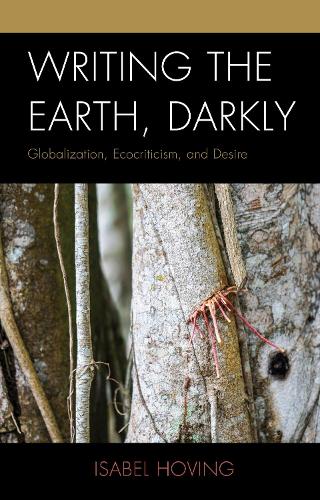
Writing the Earth, Darkly: Globalization, Ecocriticism, and Desire
(Hardback)
Publishing Details
Writing the Earth, Darkly: Globalization, Ecocriticism, and Desire
By (Author) Isabel Hoving
Bloomsbury Publishing PLC
Lexington Books
8th February 2017
United States
Classifications
Professional and Scholarly
Non Fiction
Applied ecology
Environmentalist thought and ideology
577
Physical Properties
Hardback
256
Width 159mm, Height 237mm, Spine 21mm
494g
Description
Why do we find so many references to nature and the environment in the many Caribbean literary texts that try to come to terms with the contemporary age of globalization Even when these novels and poems do not seem to be concerned with environmental issues at all, they abound with fragrant, creepy or dark references to flowers, insects, trees, gardens, and mud. This book discusses a range of Anglophone and Dutch-language Caribbean literary texts to propose an answer. It shows that some writers evoke nature to question oppressive notions of what is natural, and what is not, when it comes to race, gender, and desire. Other writers choose to counter the destructive dichotomies of wildness/order, nature/culture, nature/human that marked colonialism. Instead, they represent the environment as a field of interconnectedness, marked by intense semiotic interaction, in which human beings are also implicated. But writing about nature can also be a means to reconnect with the very foundations of life itself. In the most dramatic cases, references to nature evoke an extra-discursive space that then functions to subvert existing discourses. That space may even mark the site of the annihilation of discourse, or of the self. These texts suggest that, in times of globalization, it is only the dark, queer turn to matter that will free the path to imagining human existence in a new way. The books proposal to understand some of these fascinating texts as an effort to relate to the mind-baffling, explosive real is inspired by postcolonial trauma theory, posthumanism, and new materialism. However, Caribbean literature is a layered practice, that does much more than merely explore the worlds materiality. It works simultaneously as cultural critique, counter-discourse, and as the manipulation of affect. This book therefore brings together ecocriticism with Caribbean and postcolonial studies, the study of globalization, trauma theory, the study of gender and sexuality, posthumanism and new materialism, to bring out the full complexity of these wise texts. Thus, it hopes to show its readers their extraordinary innovative potential.
Reviews
Postcolonial studies and ecocriticism have never been quite the same since the advent of the new materialism; nor has the relationship between them. Hoving's timely book shows why. -- Graham Huggan, Chair of Commonwealth and Postcolonial Literatures, School of English, University of Leeds
Author Bio
Isabel Hoving is associate professor of literary studies at the University of Leiden
